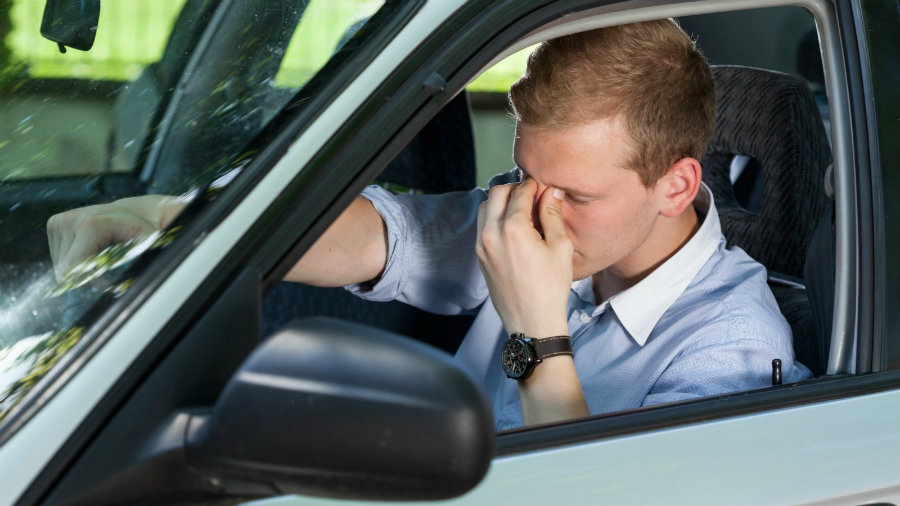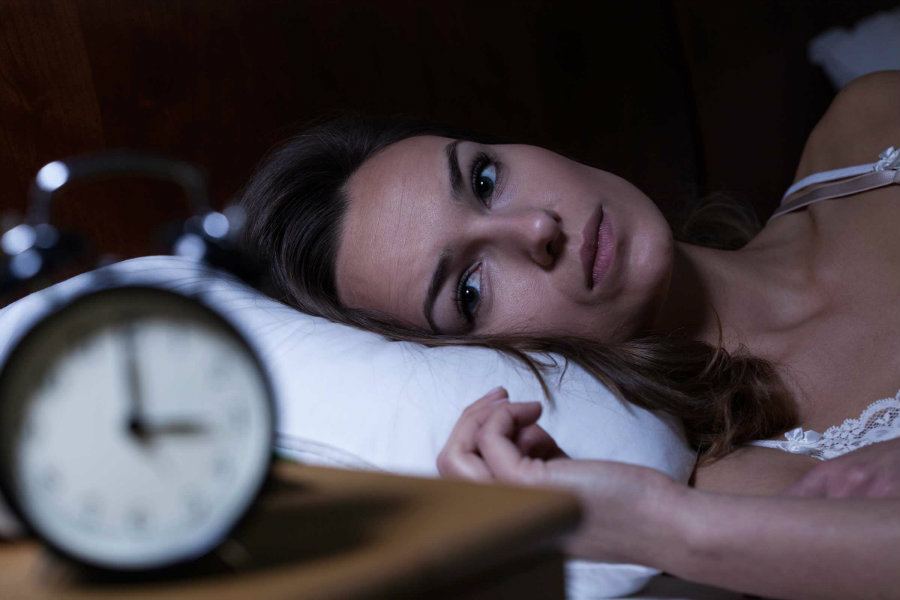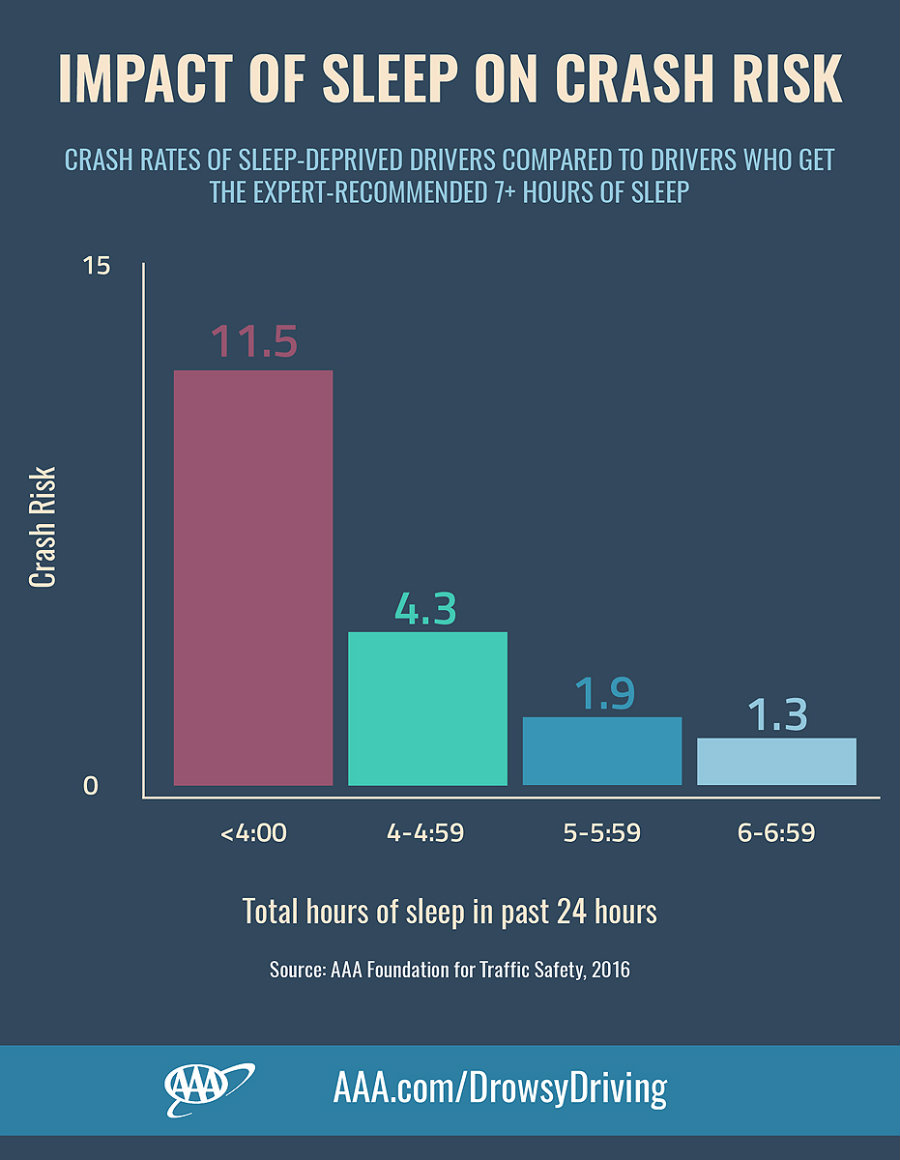A new study shows that sleeping less than seven hours a day increases the risk of having a car accident. The research states that driving while sleepy is similar to driving with alcohol in the blood. The AAA Foundation for Traffic Safety estimated that as many as 7 percent of all crashes involved driver drowsiness due to sleep deprivation.
The study was announced last week, and it is based on data from crashes that occurred in the United States between July 2005 and 31 December 2007. The accidents involved at least one light vehicle towed due to damage, resulted in an emergency medical services dispatch or demanded an on-scene investigation as part of a study carried by the U.S. Department of Transportation Investigation which assessed driver’s recent sleep.

There has been other research that analyzed how sleep deprivation affects driving skills, but this is the first study to calculate the risk between specific measures of lack of sleep and crash risk. The number of hours that a driver has slept in the past 24 hours determines how high or low are the odds to get involved in a car accident.
The sample used by the AAA Foundation for Traffic Safety took into consideration 7,234 drivers involved in 4,571 crashes. Those people were found to have made an unsafe or illegal action, inaction or error that led to the critical situation: The car accident.
Sleeping less than seven hours is not enough to drive safely
Previous research made by the AAA Foundation for Traffic Safety that seven percent of all crashes, 13 percent of car accidents that result in hospital admission, and 21 percent of fatal crashes involved driver drowsiness due to sleep deprivation.
Drivers who slept for less than four hours had an estimated 11.5 times the chance to have a car accident than those who managed to sleep more than seven hours. People sleeping 4 to 5 hours, 5 to 6, and 6 to 7 hours in the past 24 hours had an estimated 4.3, 1.9 and 1.3 times the crash rate, respectively, of drivers who did sleep the recommended hours by different experts, the study says.

The study based their data on surveys and information related to the more than 7 thousand drivers and 4 thousand crashes. It assessed how many hours of sleep the driver who provoked the accident had the day of the accident, including naps.
The estimated rate of car accidents due to sleep deprivation is similar to the U.S. government’s estimates regarding the risk associated with driving after alcohol intake equal or slightly above the legal limit for drivers. The chances to get involved in a car accident are even greater if a person does not sleep more than four hours a day before driving and the risk increases with fewer hours of sleep.
According to the Centers for Disease Control and Prevention, 35 percent of U.S. drivers sleep less than the recommended seven hours daily, which generally leads to drowsy driving.
The study defined drowsy driving symptoms as having trouble keeping eyes open, drifting from lanes, or not remembering the last few miles driving. Nevertheless, more than half of drivers reported not to have experienced any of those symptoms before falling asleep while driving. Thus, researchers stressed that people should not rely on symptoms to make the decision not to drive. Drivers should prioritize seven hours of sleep before being behind the wheel.
“Managing a healthy work-life balance can be difficult and far too often we sacrifice our sleep as a result,” Jake Nelson, director of traffic safety advocacy and research for AAA, said in a statement.
He also added that sleep deprivation could lead to putting one’s life and the life of others at risk.
More than 95 percent of the people surveyed for the study saw drowsy driving as unacceptable behavior which threats their safety. But then, nearly one in three of the participants admitted having driven while being fatigued in the past months.
Sleep deprivation slow reactions in any task, including driving
Not getting enough sleep has been proven to slow reactions to stimuli. It also decreased the accuracy of responses and affects the capacity to pay attention. Those effects have negative implication when driving, especially because drivers must be concentrated on the road.
The National Sleep Foundation recommended that healthy adults between the ages 18 and 64, should sleep 7-9 hours to avoid any adverse effect in human reflects.
If someone has not had enough sleep, that person should not drive. And if they have to make a long trip, the recommendations include to drive with an alert copilot and to take turns driving. Also, traveling at times when people are usually awake, schedule breaks every two hours, and avoiding medication can affect the response to unexpected stimuli.
The AAA Foundation for Traffic and Safety is a nonprofit research and education organization and the study was titled “Acute Sleep Deprivation and Risk of Motor Vehicle Crash Involvement.”

Source: AAA Foundation for Traffic and Safety
